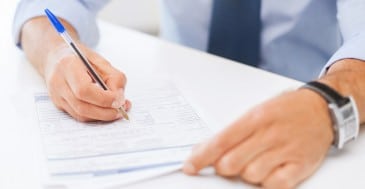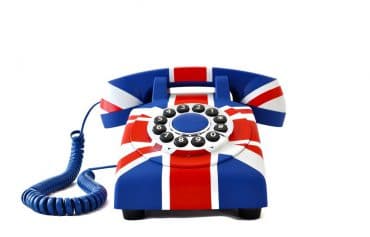
Vor allem dann, wenn Sie für Ihren Chef oder für einen Kollegen eine Auslandsreise planen, werden Sie viele Gesprächsnotizen auf Englisch anfertigen und mit Ihrem Gesprächspartner abstimmen müssen. Hotelreservierungen, Businesstermine, Treffpunkte – wenn solche Fakten fehlerhaft übermittelt werden oder hier etwas falsch verstanden wurde, kann das den Erfolg der gesamten Reise gefährden. Schreiben Sie also bei Telefonaten usw. gewissenhaft mit und vergleichen Sie, ob Sie und Ihr Gesprächspartner alles gleich verstanden haben und auch immer dasselbe gemeint haben.
Imagine that you are in the process of organising a complex business trip: it is crucial that the key details of the trip are settled, so careful notes and follow-up emails are essential.
Note-taking
Use the International Civil Aviation Organization’s (ICAO) alphabet to avoid misunderstandings and don’t expect to remember what you hear: up to 67 % of what we hear is forgotten within 24 hours, so rely on your written notes more than on your memory. Nobody will mind if you double-check your facts – or get the other person to repeat what they have noted so that you can double-check their facts too:
- “Let me read that back to you.”
- “Could you read that back to me please?”Be prepared: date your notes before you start (you might want to note down the time too; it never hurts to be specific) and note questions you need answers to or details you want before you start.
Complex information
When you expect a long string of information, think about what you will be hearing so you can set up your paper with columns pre-labelled for those aspects. So you will easily be able to transfer this information to a follow-up email.
Starting the email
After the appropriate salutation, it is usual to begin by reminding the person of the telephone conversation and when it took place:
- “Following up on our phone call this morning about hotel bookings, I would like to recap …”
- “Further to our telephone conversation on Friday, 11 March, concerning the itinerary, I am writing to confirm …”
- “We spoke on the phone yesterday afternoon about the travel plans and I wanted to go over …”
Which one seems the most formal to you and which is the most informal? The second example is very formal, the third is fairly informal; the first lies in between. An easy way to get a feel for the level of formality is to look carefully at the words used: a lot of longer words can often indicate more formal, while mostly short words indicate less formal!
Details
List all the details or questions you need in the body of your email:
- “I noted that the hotels need to be part of the Starwood Chain in order to use our corporate rates, but if no Starwood is available which chain should we use or doesn’t it matter?”
If your telephone conversation was exceptionally long and detailed, it might even be a good idea to write up your notes in a separate document and attach this to a more basic email.
The next steps
Once you have listed the information that is contained in your notes, and any questions arising from these, you need to inform your reader of what you intend to do next, or conversely what you expect from them:
- “I will contact you again as soon as I have received confirmation of …”
- “Please let me know as soon as you have confirmation of …”
- “I expect to hear back from the hotel within the next 24 hours so I will …”
Finally end your email appropriately depending on the degree of formality you have used.
von Lucy Renner Jones und Anita Duncan



